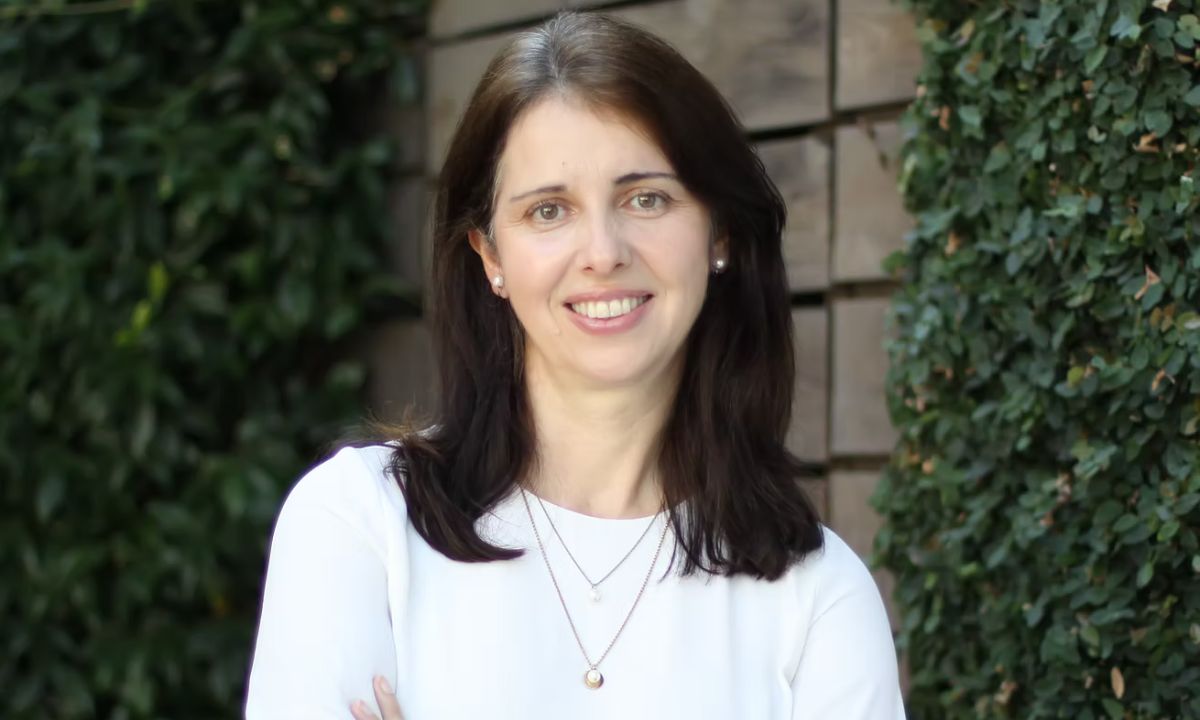Our country is in the midst of a loneliness epidemic, and Isabelle Hau, director of the Stanford Accelerator for Learning, believes this sense of disconnect starts quite early in life. For adults to feel more connected to one another, they need strong relationships in early childhood.
Before COVID-19, one in five young people lacked a single caring adult in their lives, and since 2020, almost half of high school youth reported having no supportive relationships, a decline by half from a decade earlier. Hau calls this “relational scarcity” and concludes that while kids need strong early relationships to thrive, those same relationships are among the single strongest predictors of a child’s later success and ability to overcome adversity.
Hau’s new book, “Love to Learn: The Transformational Power of Care and Connection in Early Education,” tackles this crisis head on, with all indicators pointing toward the power of early care. She includes her own personal story: A psychological test at age 3 concluded that Hau had “low academic aptitude.” Her parents, undeterred, enrolled her in a high quality public preschool in France with strong teachers, where she formed attachments and thrived. “I believe that this moment of benefiting from high quality early education made a huge impact. Which is why I have focused on early childhood education as a huge part of my academic life,” she says in an interview with journalist Rebecca Gale.
The conversation below is edited for length and clarity.
Your book talks about the need for children to have a robust network of relationships, including with people they are not related to, and how this has changed in recent generations. How can parents and families make a shift going forward?
Isabelle Hau: This is why I wrote this book because I am very worried about where we are regarding “relationships circles” around children. We have a huge body of science that says relationships matter for children in life. However, children are more and more isolated, and while there’s more discussion on loneliness and isolation among adults, I believe that the problem starts in the early years.
We have children in very small family units: The number of families with only one child has doubled over the past 30 years. And it’s intergenerational; more than half of grandparents have at least one grandkid who lives more than 200 miles away. And only 3% of children have been interacting with someone above age 65 that is not their direct grandparent.
There is lots of really good data on the benefits of [intergenerational relationships]for the child and for the elderly person, and also benefits for the middle generation, the parents.
How can parents grow their relationship circles?
That starts as a family unit, increasing the number of relationships and making sure the relationships within the family unit are very strong. Turn family time into relational time. I know it’s not always possible for every family, but ideally dinner time is together without any technology interruption or devices at the table.
To expand the circles of relationships, there are a few things that families can do. Ensure that kids play — focusing on free play, and prioritizing relationships with little ones and families. It sounds also really obvious but with kids who are more and more scheduled, there is less and less time to make those friendships and enjoy free play. Even playdates have become more and more structured these days.
You have many examples about how our COVID-era policies had detrimental effects on our youngest learners. Can you talk more about why that is, and what else we can do to overcome it?
There is a reason one of the greatest punishments in incarcerated systems is to have people in solitary confinement, because it is one of the greatest human tortures.
It had a huge impact [during COVID] to be confined at home with minimal interaction. ECE educators are still observing a number of issues at this point. Kids are having more and more issues socializing with others.
Parents were expressing some concern for older kids too. I was looking at survey data that shows more than 20% of children at this point don’t have a friend. This was for any child, ages 6-12, as expressed by parents.
And these concerns have seen a shift since COVID?
The challenges we’re seeing today didn’t start with COVID. Even before the pandemic, children were playing less and spending more time on technology — reflecting broader societal trends that predated COVID. However, the pandemic amplified these concerns significantly.
One deeply troubling data point comes from Dani Dumitriu’s research during the pandemic. She studied a cohort of mothers giving birth at the onset of COVID-19 in New York City and tracked the emotional connections between mothers and their babies. Alarmingly, only 20% of these children had a strong emotional connection with their mothers; 80% did not. Even more concerning is that, before the pandemic, only 40% of mothers with young children had a strong emotional connection; 60% did not. Think about that – 60% was already a crisis, and the pandemic made it so much worse.
You focus on the need for relational learning at school, and how not enough attention is given to teaching this. Do you see that shifting, and what do you think progress in this area would look like?
There are many promising experiments happening in early childhood settings, but I would love to see more schools intentionally focus on the importance of relationships. Most teachers enter the profession because they are deeply relational and passionate about building meaningful connections with their students. Yet our current systems often fail to prioritize relationships. For example, early childhood educators are often moved between classrooms early in their careers, disrupting the relationships they strive to build. They often leave the profession as a result. There are concrete steps we can take, such as dedicating more time to free play/recess, or guided play during class, setting relational goals, and starting each day with connection circles. These small but powerful changes can make a big difference in fostering meaningful relationships in early education.
Your chapter on robotic child care sounded like something out of a science fiction movie. How can we approach AI so that we aren’t relying on robots to care for kids but we are still open to learning about ways technology can make things easier?
The option of AI is everywhere; there is extremely rapid adoption. The impact on relationships and learning is really unclear on this point. We want to see technology and AI augment human relationships and not replace them.
Here is where I am concerned — what I call ‘junk tech’ is technology that is not good for us, not relational in nature. We should minimize that, like we do with junk food. We can have a little bit but not too much. But here is a problem I see as a parent and an educator: It is very difficult for any of us to find what is good or not good from a tech perspective.
If you are looking at or trying to download an app for your child, it is very difficult to know whether it is relational or not. You have tools like Common Sense Media that are trying to help, but I would like to see, like in food, that if you buy a bag of chips you can see the nutritional benefits. It doesn’t mean it will change your behavior, but at least you will have information. But for tech tools we don’t have that right now. It is an area I would love to see more progress being made.

Rebecca Gale
Rebecca Gale is a writer with the Better Life Lab at New America where she covers child care. Follow her on Instagram at @rebeccagalewriting, and subscribe to her Substack newsletter, "It Doesn't Have to Be This Hard."



